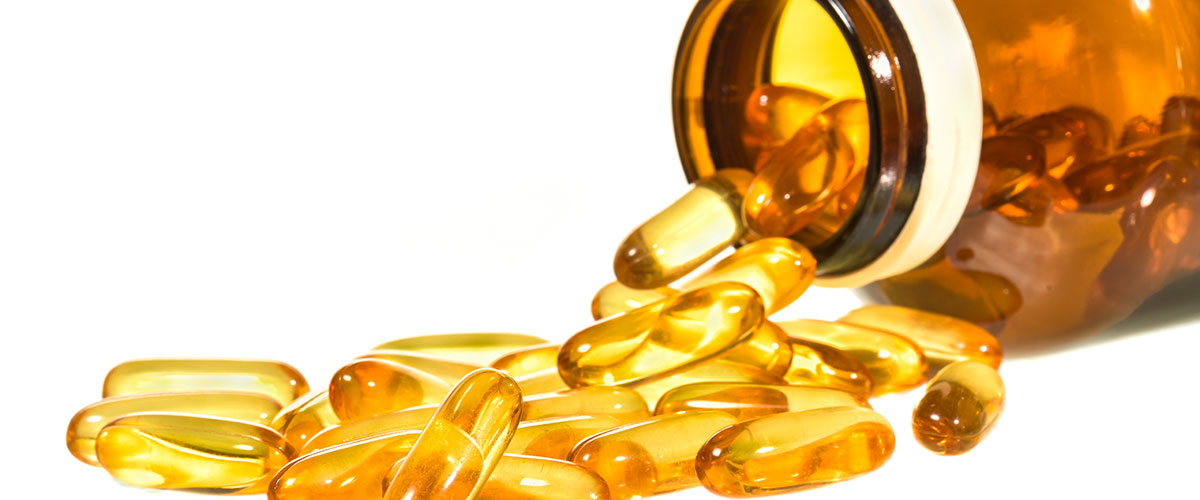Do I Need to Take Vitamin D?
An expert explains why vitamin D is important, what happens if you are vitamin-D deficient, and how to get enough of this “sun vitamin.”

You probably know vitamin D is important. It’s vital to bone health, muscle movement, nerve connections to the brain, and immune system function.
Studies suggest vitamin D also may help protect us from infections (including COVID) and major diseases like cancer, cardiovascular and respiratory diseases, diabetes, and dementia.
Because it’s often in the news and is available on store shelves, vitamin D seems like an easy way to bolster your health. But is it?
Endocrinologist Dr. John Bilezikian, an attending physician at NewYork-Presbyterian/Columbia University Irving Medical Center and the Dorothy L. and Daniel H. Silberberg Professor of Medicine at the Columbia University Vagelos College of Physicians & Surgeons, answered common questions about vitamin D to explain what it can and cannot do.
What is vitamin D?
Vitamin D, like all vitamins, is a nutrient that’s essential for life. Our bodies produce active vitamin D after exposure to sunlight, and we get some vitamin D from food. Vitamin D is also a hormone. Hormones help control how cells and organs function.

Dr. John Bilezikian
What is the difference between vitamin D3 v. vitamin D2?
Two forms of vitamin D are available in supplements: vitamin D3 and vitamin D2. Both can help correct vitamin D deficiency, but most doctors recommend D3 because it is slightly more active and therefore slightly more effective. Vitamin D3 is naturally produced by animals, including humans. Vitamin D2 is the plant form. Using the form made in our bodies is another reason for recommending vitamin D3.
What does vitamin D do?
Vitamin D makes our bodies better at absorbing other nutrients, namely calcium and phosphorus, both important for bone health. Vitamin D also helps to restore and maintain the calcium in our bones, where 99% of it resides. Without sufficient vitamin D, bones can become weak and fragile.
Some studies show a possible connection between vitamin D and protection against cancer, heart disease, bacterial and viral infections, COVID, and more. But more research is needed to substantiate these links.
Why is vitamin D in the news?
A recent study on the use of vitamin D supplements in reducing the risk of fractures showed taking vitamin D had no effect on the rate of broken bones in 25,000 healthy people who had enough vitamin D in their bodies naturally and no known bone problems.
This study has been widely quoted as “proving” vitamin D supplements are not needed. However, the study was not designed to address the many individuals with vitamin D deficiency, for whom vitamin D might well be helpful. It is self-evident that giving more vitamin D to people with normal vitamin D levels is unlikely to be beneficial.
This study does not provide any information about individuals who have low levels of vitamin D.
Vitamin D: The Sun Vitamin
The primary source of vitamin D is sunlight. People who live closest to the equator have the best exposure to vitamin D. In regions farther from the equator, particularly in the winter, the sun’s rays are less effective.
If you live in New York and the surrounding area:
- From October to April: The sun provides minimal or no vitamin D, regardless of time spent outdoors.
- This is when supplements are vital.
- From May to September: 15-20 minutes of sun a day is enough.
- Remember to put sunblock on after this sun exposure if you continue to stay outdoors.
- If you’re over age 70, you may need more than 20 minutes because your skin does not make vitamin D as well as it did when you were younger.
- This is when supplements are vital.
- Remember to put sunblock on after this sun exposure if you continue to stay outdoors.
Vitamin D must be activated in the body to work. After getting vitamin D from the sun or a supplement, the body uses a two-step biochemical process—starting in the liver and ending in the kidney—to convert it to active vitamin D.
When bodies can’t activate vitamin D, deficiencies occur. This is particularly important for individuals who have advanced kidney or liver disease.
What happens if you do not have enough vitamin D?
If you do not have enough vitamin D, your body doesn’t absorb calcium in food. If the body does not absorb calcium from food, bones become a source of calcium. The body is always seeking the level it needs and takes calcium where it can get it. The result: loss of calcium from bone.
The average healthy person loses about 500 milligrams of calcium every day from bones and replaces it with the same amount of new calcium. When someone is vitamin D-deficient, calcium is not replaced adequately, which leads to weak and fragile bones.
How do you know if you’re vitamin D-deficient?
Measuring the form of vitamin D made in the liver, called 25-hydroxyvitamin D, is the best way to find out whether you are deficient. Ask your doctor if you should do this blood test.
Bone density tests measure how much calcium is in bones. Low bone density signals a condition called osteoporosis. Severe vitamin D deficiency can be a sign of osteomalacia (Greek lesson: soft bones). In children, severe vitamin D deficiency appears as rickets.
When is the best time to measure vitamin D?
Your lowest level is likely to be in the middle of winter. Measure then. If you start taking in sun or supplements, measure again two to three months later. It takes about that long to get to a steady level.
What foods have vitamin D?
Few foods contain vitamin D, unless it’s been added (adding nutrients to food is called fortification). Orange juice, milk, yogurt, and cereal are often fortified with vitamin D. Check labels. To minimize processing, many organic products are not fortified.
Vitamin D is naturally present in fish, especially fatty, oily fish like salmon. Choose wild over farmed when you can: A study showed farmed salmon had about 25% of the vitamin D content as wild salmon. You can also get vitamin D from fish liver oils.
It’s best to get nutrients through natural sources, but get it however you can.
How much vitamin D should you take?
If you’re not getting enough vitamin D from the sun or food, you can take pills, capsules, drops, and other forms of vitamin D. Many multivitamins contain vitamin D.
How much vitamin D you need depends on factors like age and health issues. Talk to your doctor. Celiac disease and other conditions associated with malabsorption of food make it difficult for the body to absorb nutrients. People with these conditions and who have had gastrointestinal tract surgeries need more vitamin D.
- For people over age 70, the daily recommendation is 800 IU (20 mcg).
- For people below age 70 it’s 600 IU (15 mcg).
These recommendations meet the bone health needs for most people. In most situations, taking more than 4,000 units per day is not recommended.
What’s the most important thing to know about vitamin D?
Vitamin D plays an important role in health but it’s just one vitamin people need. Simply taking vitamin D will not fix everything that might be wrong with your health.
A version of this story first appeared in the Columbia University Irving Medical Center Newsroom.
John Bilezikian, MD, is an attending physician at NewYork-Presbyterian/Columbia University Irving Medical Center. He is also the Dorothy L. and Daniel H. Silberberg Professor of Medicine at the Columbia University Vagelos College of Physicians & Surgeons, vice chair of the Department of Medicine for international education and research, chief emeritus of the Division of Endocrinology, and director emeritus of the Metabolic Bone Diseases Program at Columbia University Irving Medical Center.
